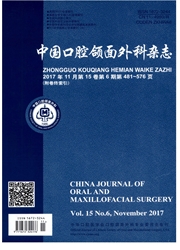

 中文摘要:
中文摘要:
免疫检查点阻滞剂与免疫系统的抑制通路有关,在维持自身免疫耐受和调节生理状态下机体免疫反应的强度两方面扮演着重要角色。但同时肿瘤细胞也通过调节该通路抑制免疫活性,形成免疫逃逸。因此,阻断免疫检查点通路可有效增强机体的抗肿瘤免疫效应。恶性黑色素瘤作为最难有效治疗的恶性肿瘤之一,与恶劣的生物学行为相反的是其对免疫治疗反应良好。最新的临床研究表明,免疫检查点CTLA-4和PD-1的阻滞剂在治疗恶性黑色素瘤方面有确切疗效,本文总结伊匹、派姆和纳武单抗针对恶性黑色素瘤的临床疗效和毒性的最新研究结果,旨在为临床实践提供帮助。
 英文摘要:
英文摘要:
Immune checkpoints refer to the inhibitory pathways in the immune system, which play a crucial role in maintaining self-tolerance and modulating the amplitude of physiological immune responses. Tumour cells combine certain immune-checkpoint pathways as a major mechanism of immune resistance. Therefore, we can block the pathways by antibodies in order to increase the immune responses. Maliguant melanoma is one of the most difficult to treat among malignant tumors, which is more sensitive than others to immunotherapy in contrary to its terrible biological behavior. Antibodies of cytotoxic T-lymphocyte-associated antigen-4 (CTLA-4) and programmed cell death protein-1 (PD-1) have demonstrated high activity in melanoma according to recent clinical trials internationally. In this review, we summarized the evidences about the efficiency and toxicity of ipilimumab, pembrolizumab and nivolumab to provide references for clinical treatment.
 同期刊论文项目
同期刊论文项目
 同项目期刊论文
同项目期刊论文
 期刊信息
期刊信息
